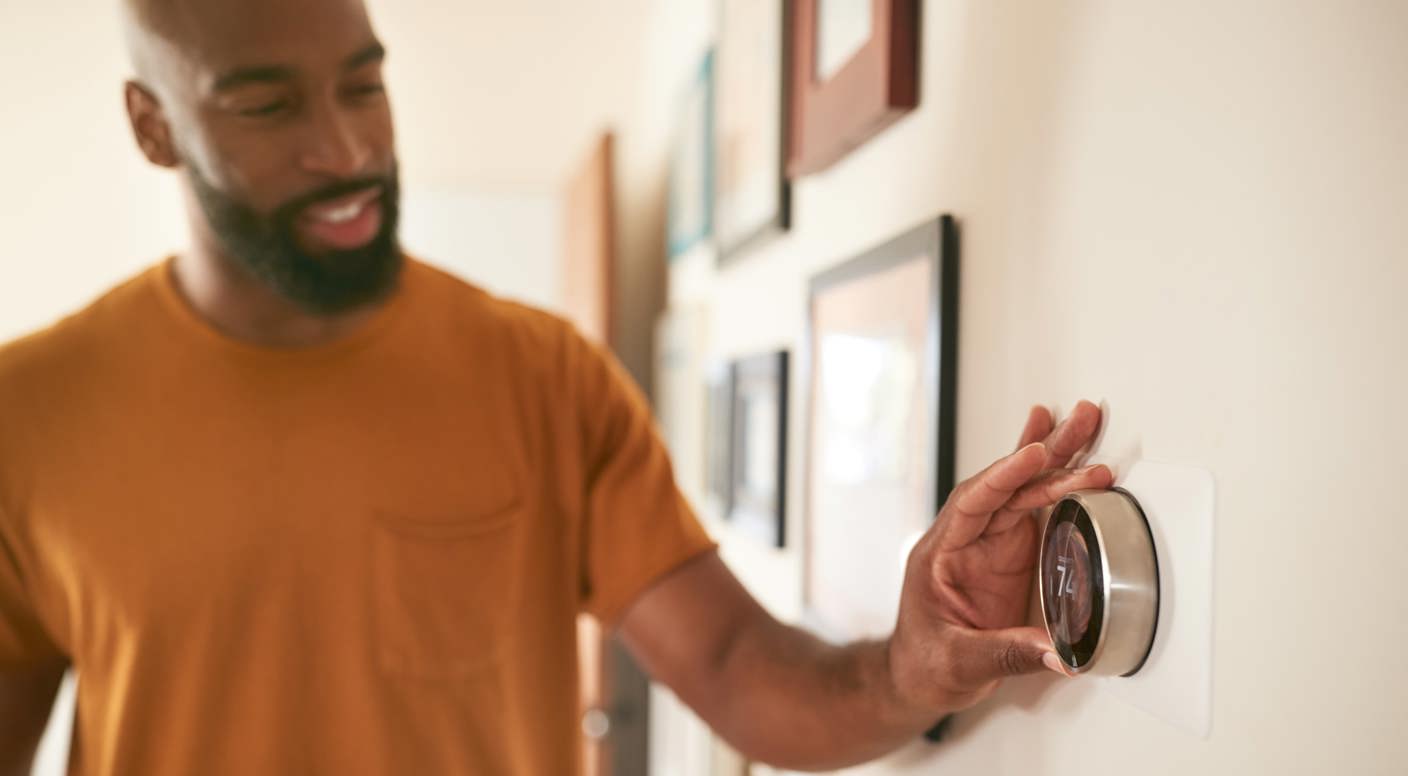An accurate property valuation you can trust
We'll help you to find the value of your property, so you can find a buyer or tenant as soon as possible.
Enter your details below to book a professional appraisal.
In today's fast-paced world, the energy demand is ever-increasing. However, as we become more conscious of our carbon footprint and the need to protect our environment, we must consider minimising our energy consumption. A significant portion of our energy use originates from our homes. But the good news is that we can make our homes more energy-efficient with a few substantial and minor adjustments. Farrell Heyworth has put together a guide that presents 15 practical and impactful ways to save energy in your home. Whether you're looking to make minor changes or undertake a larger project, these tips will help you create a more sustainable living environment.

1. Switch to Energy-Saving Bulbs
One of the simplest and most cost-effective ways to reduce energy consumption is to switch to energy-saving bulbs, such as LED (light emitting diodes) or CFL (compact fluorescent lamps). They not only consume up to 90% less energy than traditional incandescent bulbs but also last much longer, making them a worthy investment for your home.
2. Install a Smart Thermostat
Smart thermostats allow homeowners to program and control their homes' heating remotely. This ensures that energy is not wasted heating an empty home. Over time, they learn your routine and optimise heating schedules to match your lifestyle.
3. Seal and Insulate
Proper home insulation can significantly reduce heating and cooling costs. Ensure the loft, walls, and floors are adequately insulated. Additionally, sealing gaps around doors and windows can prevent drafts and reduce energy wastage.
4. Efficient Appliances
When purchasing new appliances, look for the Energy Saving Recommended label or any other energy efficiency rating. Efficient appliances can greatly reduce the energy consumed in everyday tasks.
5. Invest in Solar Panels
Solar panels, or photovoltaic cells, convert sunlight into electricity. Though the initial cost can be high, they can significantly reduce your electricity bills and provide clean energy for your home.
6. Use Energy-Efficient Windows
Double-glazed or even triple-glazed windows insulate much better than single-pane windows. They reduce heat loss in winter and keep your home cooler in the summer, leading to decreased reliance on heating and air-conditioning.
7. Water Conservation
Fitting your taps with aerators or flow reducers can reduce the water you use. Water-efficient appliances, like washing machines and dishwashers, can also lead to substantial energy savings.
8. Hang Clothes to Dry
Whenever possible, avoid using a tumble dryer. Hanging clothes out to dry or using an indoor airer can significantly reduce the energy you use for laundry.
9. Turn Off Standby Appliances
Electronics left on standby can still consume considerable energy. Make it a habit to switch off appliances on the wall when not in use.
10. Upgrade Your Boiler
If your boiler is over ten years old, consider replacing it with a newer, more energy-efficient model. Modern boilers can be over 90% efficient, translating to significant savings on heating bills.
11. Install a Water Cylinder Jacket
If you have a hot water cylinder, wrapping it in a well-fitted insulation jacket can reduce heat loss and save energy. This means your boiler must work less to heat the water.
12. Plant Trees Strategically
Planting trees or shrubs around your property can act as natural insulators, shielding your home from winter wind and providing summer shade. This can reduce the need for additional heating or cooling.
13. Reduce Shower Time
Cutting just a minute off your daily shower time can reduce energy consumption yearly. The savings can be even more substantial if you use an electric shower.
14. Maintain Your Appliances
Ensure that your household appliances, especially larger ones like refrigerators and freezers, are well-maintained. This ensures they run efficiently and consume less energy.
15. Reflective Radiator Panels
When installed behind radiators, these panels reflect heat into the room rather than allowing it to escape through walls. This simple addition can boost the efficiency of your radiators and reduce your heating costs.
By adopting these practices, not only will you reduce your energy bills, but you'll also contribute positively to the environment by reducing your carbon footprint.
Related Posts
maximum-mortgage-borrowing-based-on-income
1. Income Multiples (The Traditional Approach) Most UK lenders offer mortgages between 4 to 4.5 times your gross annual income.…
UK Property Market Update - June 2025 Rightmove Index Breakdown
Why Sellers Are Cutting Prices More homes are entering the market than buyers, driving the most price-sensitive conditions seen in…
Home Staging Tips to Help You Sell Faster (and for More Money)
1. Declutter Ruthlessly Buyers need to visualise themselves in your home, and clutter makes that harder. Box up personal items,…



